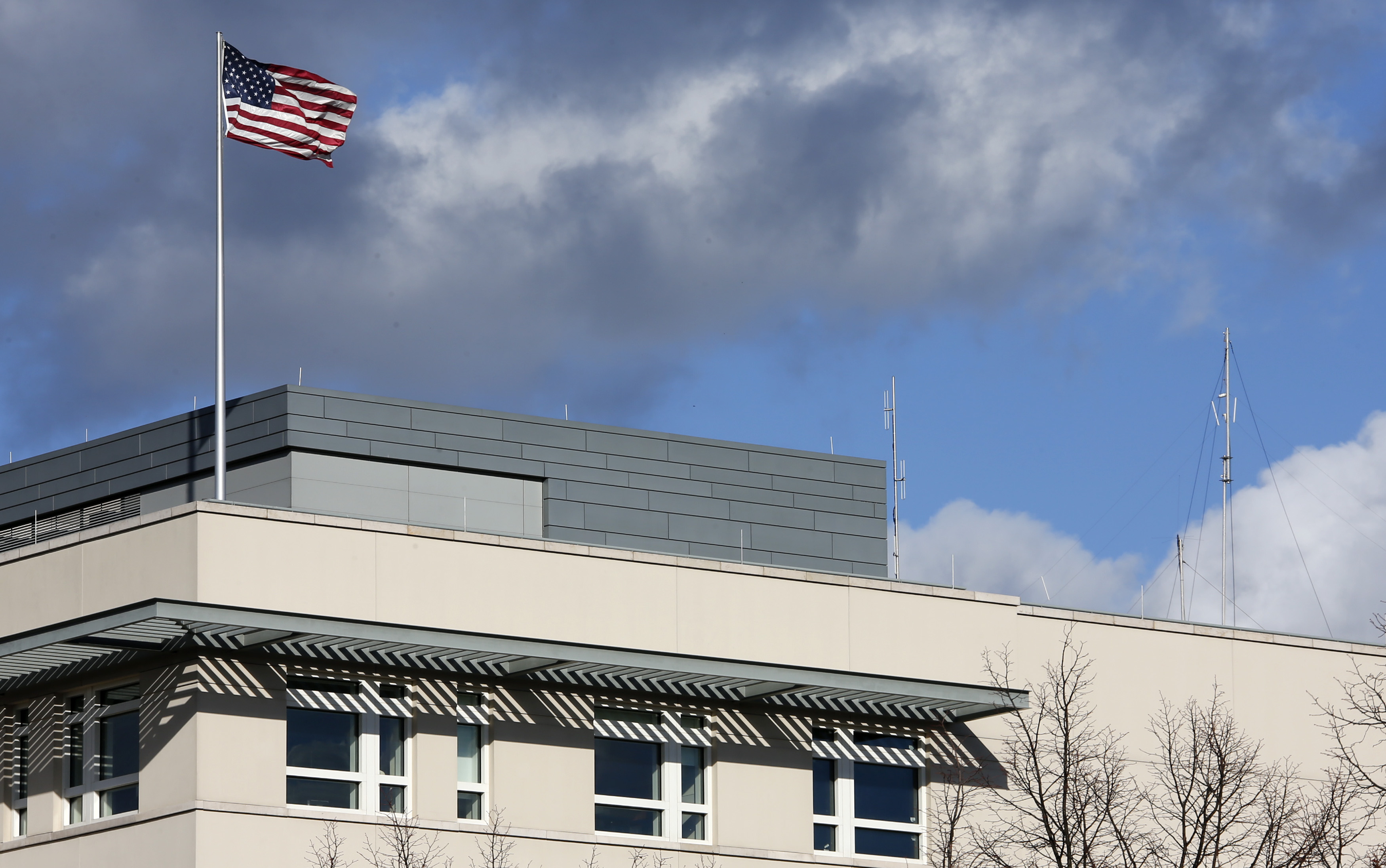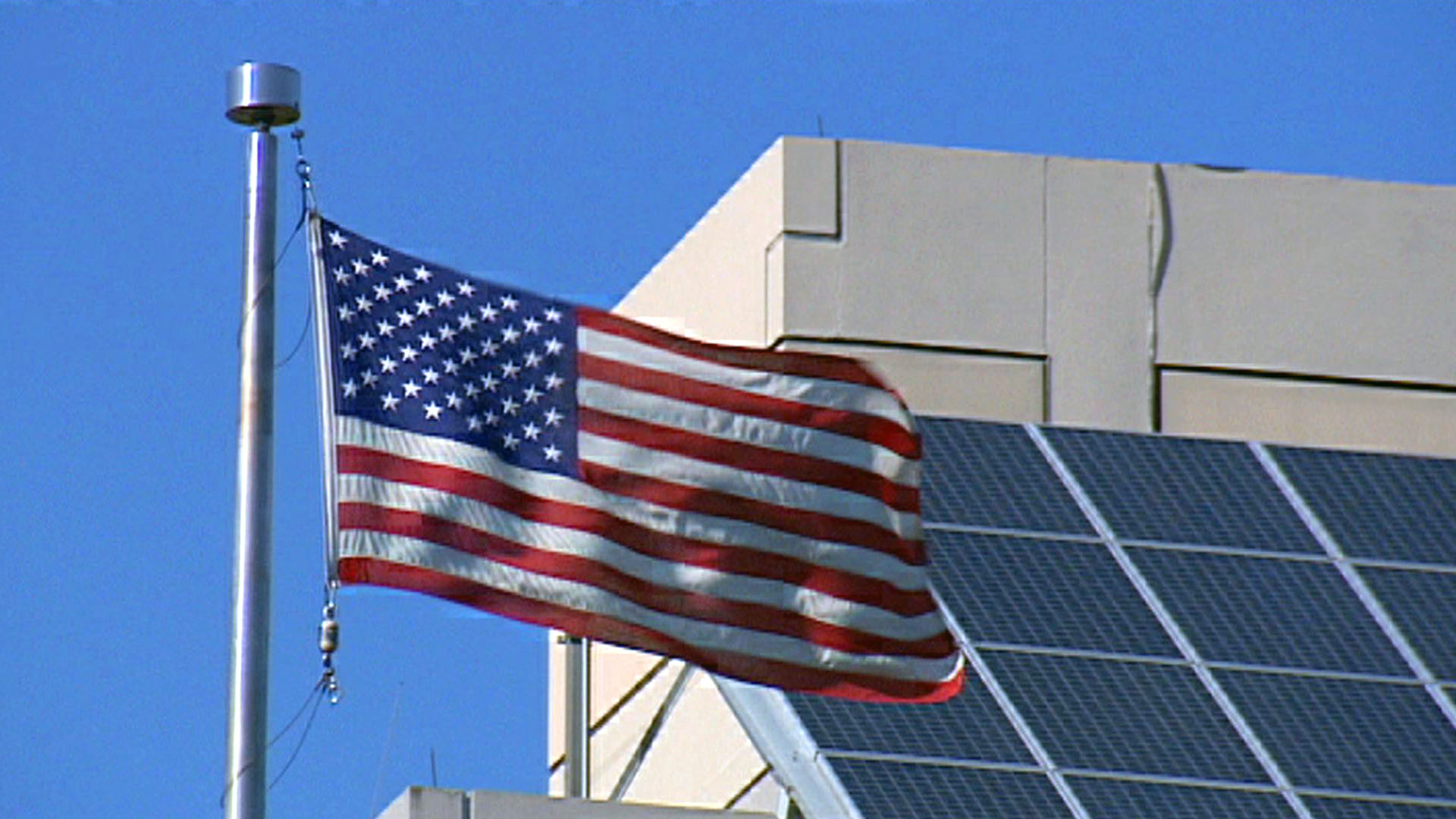‘They have destroyed the system’

The city of Geneva has been in the spotlight this week as part of the latest National Security Agency (NSA) spying allegations. Investigative journalist Duncan Campbell tells swissinfo.ch about the possible extent of US surveillance in Switzerland.
The reporter and author has extensive experience covering state surveillance and privacy issues. He acted as a consultant for the German Der Spiegel magazine in their latest investigation into top secret NSA listening installations, protected from scrutiny by diplomatic immunity, which are used to conduct massive electronic listening, usually from the top floors of US embassies.
This week Spiegel claimed, based on a 2010 document provided by the former NSA contractor Edward Snowden, that the US mission in Geneva houses a powerful joint NSA-CIA electronic monitoring station.
The Geneva “Special Collection Service” (SCS) is said to be one of around 80 SCS locations, 19 of which are in Europe in cities such as Berlin, Paris, Madrid, Rome and Prague (see video). The US mission and the Swiss Intelligence Service refused to comment on the Spiegel article (freeform).
swissinfo.ch: What is so special about the Geneva site?
Duncan Campbell: I first noticed the electronic intelligence correction on the roof of the US mission when I came to lecture at the Geneva Centre for Security Policy in 2002-2003.
The location in Geneva is pristine, in the centre of the United Nations and diplomatic district in the east of the city where any kind of electronic signal, either from the UN, international organisation, embassy, business or consultancy, if that signal leaks out they will get it.

More
International centre focus of spying allegations
swissinfo.ch: A recent German TV documentary on ZDF, reported in Schweiz am Sonntag newspaper, claimed that since the NSA took over a monitoring station in Bad Aibling near Munich in 2006 it now has direct access to listening stations in Denmark and Switzerland, namely at the Swiss towns of Leuk and at Heimenschwand. The documentary claims there is a secret agreement between the NSA and Denmark/Switzerland to exchange data. Is this plausible?
D.C.: Denmark definitely. For Switzerland I’m also certain there is an exchange agreement with the NSA. Indeed, there is a lot of American involvement in the Leuk station. Bad Aibling has always been an NSA base but has transitioned to being run by [Germany’s] Bundesnachrichtendienst (BND) but with some American presence. So I think the story is plausible but I don’t know if it’s true.

swissinfo.ch: In August newspapers published the names of seven commercial companies allegedly working secretly with global British electronic intelligence agency GCHQ, and giving the agency access to their customers’ private communications. These included companies like the American telecom Level 3, which also has a branch in Zurich. Could they be playing a role in Switzerland?
D.C.: All the papers seen, or leaked or on their way out, show that the complicity of the commercial companies, about 80 around the world, in going far beyond what was legally imposed on them to sell their customers’ information to spy agencies for money is one of the most horrifying aspects of the Snowden disclosures. Level 3’s operations in Britain and overseas is included in that.
The investigative journalist, author, consultant and TV producer specializes in privacy, civil liberties and surveillance issues. He is also a forensic expert witness on computers and communications data.
He has provided specialist testimony in over a hundred criminal and civil cases and has given evidence to the House of Commons and the European Parliament on surveillance legislation.
Campbell was the first journalist to reveal the existence of the global British electronic intelligence agency GCHQ in 1976. This story led to the “ABC” trial in 1978, when the government attempted to jail him for up to 30 years for breaking Official Secrecy laws.
In 1980 he exposed the role of the United States National Security Agency (NSA) Menwith Hill Station in Yorkshire in intercepting worldwide communications.
In 1988 he revealed the existence of the ECHELON project, a signals intelligence collection and analysis network operated on behalf the US, Britain, Australia, Canada and New Zealand. He reported on the issue for the European Parliament which launched an investigation in July 2000.
Following the Snowden leaks, the European Parliament’s Committee on Civil Liberties, Justice and Home Affairs in Brussels commissioned an in-depth inquiry into ‘Electronic Mass Surveillance of EU Citizens’. Campbell appeared as an expert witness.
swissinfo.ch: You have spent much of your journalistic career exposing unlawful surveillance. What has surprised you most about the NSA leaks?
D.C: The most shocking aspects of Edward Snowden’s courageous revelations is the scale of surveillance. Every one of us involved in this field, I think it’s fair to say, has not been surprised by what is possible but had assumed perhaps out of hope or fear that they were limited in what they did and were proportionate, and that although we didn’t believe they would just stick to terrorism they would not try to reach for everything.
But every single document, speech and slideshow shows that a bunch of juvenile lunatics have taken over the asylum and are drunk and exuberant on their capabilities to spy on everything all the time and that is what they want to do. They have lost every sort of moral compass and respect for civic values.
That is a shock and the effect is that the security of the internet and safety of many of its component systems, both physical and electronic, are in question. They’ve destroyed the system; they’ve destroyed safety.
swissinfo.ch: But by collecting so much information, won’t they simply become swamped by data?
D.C.: The Snowden information suggests that the technological systems to cope with even the growing mass of information on the internet have been met and they have the capability to process perhaps three-quarters of what happens on the internet at the present time.
The former NSA employee turned whistleblower, Edward Snowden, claimed in media interviews prior to his flight to Russia that he worked for the CIA in Geneva in 2007 under the guise of a diplomat. It was here, he said, that he first encountered the scale of the snooping operation. He also described how the CIA recruited a Geneva banker by purposely getting him drunk and then helping him after he was arrested whilst driving.
The Swiss government had sought explanations from Washington in June about alleged snooping on Swiss soil. It was assured at the time that the US had respected Swiss laws.
In September the government publically condemned any sort of intelligence activities by a foreign service in Switzerland. It ordered the defence ministry to continue its investigation into any spying activities that had taken place in Switzerland with a view to proposing extra security measures.
Defence Minister Ueli Maurer on October 30 said the investigation was still underway.
Maurer, who also holds the post of Swiss president this year, added that the Swiss government had never had any contact with the NSA. He denied speculation that Switzerland had exchanged data with the agency. However, he said Switzerland was cooperating with the US in the fight against terrorism.
On Wednesday Spain’s El Mundo newspaper published new documents based on leaks by former NSA contractor Edward Snowden which the paper said showed that Spain and other countries cooperated with the NSA in the spying. In the NSA document seen by El Mundo, the US classifies cooperation with various countries on four different levels. In the first group – “Comprehensive Cooperation” – are Britain, Australia, Canada and New Zealand. The second group – “Focused Cooperation” – has 19 countries including Switzerland.
The Swiss government is facing calls from parliamentarians to lodge a formal protest with the US authorities or seek political measures in response to the alleged spying activities.
swissinfo.ch: The NSA is now facing a review in the US with multiple efforts to rein in programmes from which the White House seems to be distancing itself. What changes may we see?
D.C.: The largest aspect that is going to be affected is the surveillance of American citizens, as American citizens tend to care about American citizens and tend also to forget that the citizens of other countries have or should have equal rights. So these are the features of the debate that will go ahead.
swissinfo.ch: This month the European Parliament voted to tighten up data privacy rules in the wake of Snowden revelations. A new regulatory regime would block the transfer of personal data to US corporations. How viable is this proposal?
D.C.: The European Parliament is a forum for discussion rather than enablement…but I think the position has changed remarkably from the start of September. I think the past seven days -especially in Germany – have seen a tipping point where the president has been forced in effect to confess that NSA intercepted her communications and the scale and impact of its surveillance activities is being rolled out across Europe.
The problem is that many European countries, notably Britain but not exclusively Britain, have been complicit in these activities as a result of favours, trade or encouragement. Basically the NSA has, over years with Britain’s assistance, essentially tried to subvert companies and governments into a surveillance empire which is almost a supranational enterprise of their own.
European politicians and governments will have to unpick these agreements and find out the truth. I’m not even sure that Chancellor Merkel has got the full truth of her country’s intelligence with the Americans at this time. And in Switzerland manifestly the same questions should be asked. There is no Cold War or massive terrorist threat. In any country that’s playing ball with NSA people should be asking what they are doing, getting numbers and getting figures, discovering whether any protection is in place for the citizens.
Editor’s note: please note that the original article incorrectly called the US building in Geneva an embassy. The article has been amended to US mission.

In compliance with the JTI standards
More: SWI swissinfo.ch certified by the Journalism Trust Initiative
















You can find an overview of ongoing debates with our journalists here . Please join us!
If you want to start a conversation about a topic raised in this article or want to report factual errors, email us at english@swissinfo.ch.